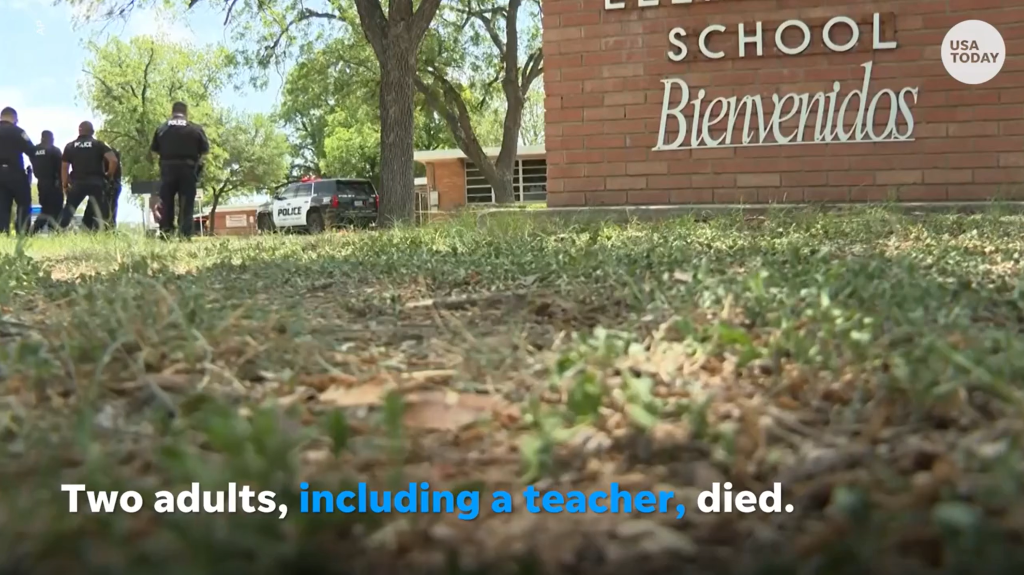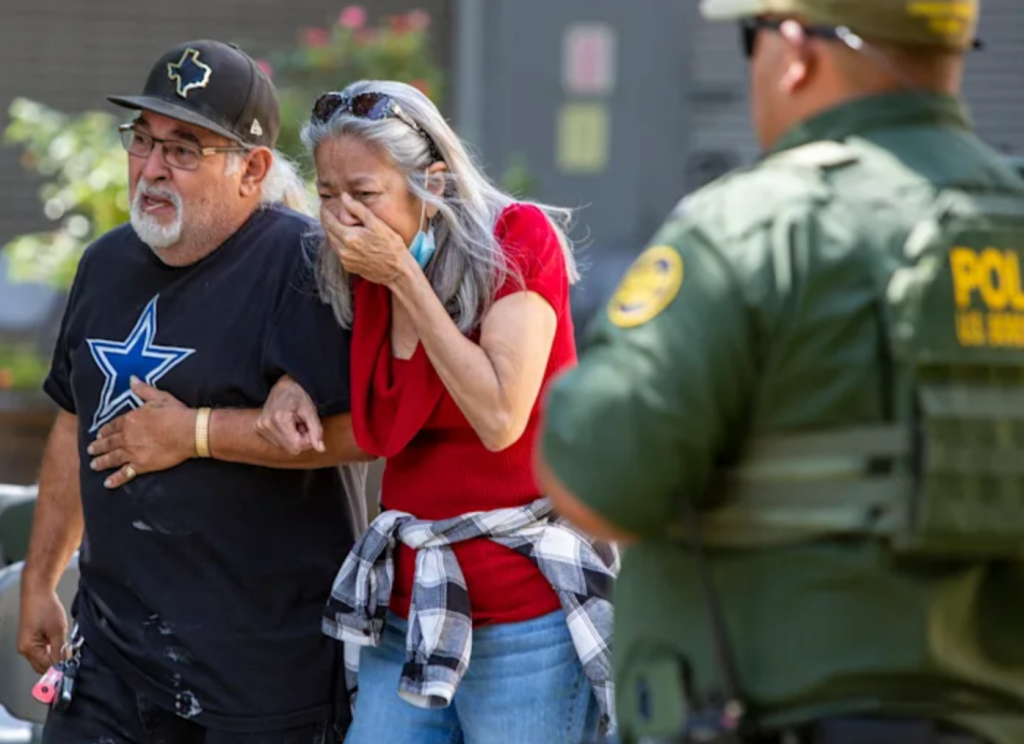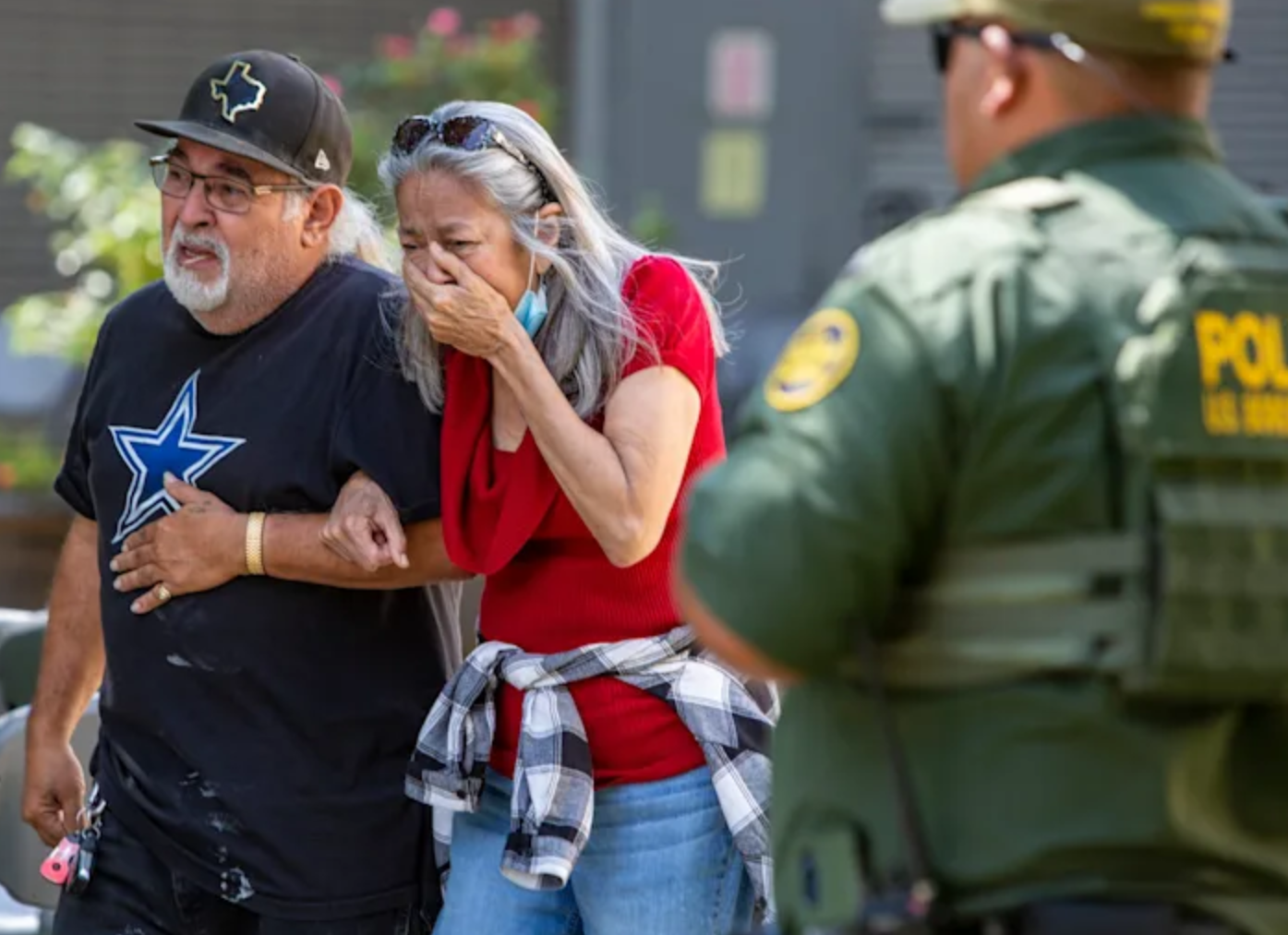
Another school.
Parents may be feeling overwhelmed after 19 students and two teachers were killed at Robb Elementary School in Uvalde, Texas, on Tuesday. How do we explain this to our children? What’s something we haven’t said many times?
In the wake of the 2017 Las Vegas concert shooting, Jane Ripperger-Suhler, a child psychiatrist at the Weston Texas Child Study Center, offered this advice to parents on how much we should say about mass shootings. It’s good advice for what happened today.
We need to be mindful of who is watching TV with us and how we interpret it.
“It really depends on the developmental level of the kids,” she says. Think about how your child will perceive what they see on TV, she says: “I wouldn’t watch too much TV with a preschooler.”
For kids who are already in school, you can watch some of it with them, but be prepared to talk about it and answer their questions. You can ask questions like, “What do you think of this? “Do you have any questions?” Gage, if they want to talk about it, but she says, “I’m not going to force them to talk about it.”
Explain things in the simplest and most truthful way possible. You can say, “A kid walked into school and shot a student.”
You can focus on your feelings that you’re frustrated and you don’t understand why this is happening, but be mindful of your reaction: “If the parent faints or gets crazy, the child will too.”
Most importantly, remind the children that they are safe; you will keep them safe and their teachers will keep them safe when they are at school.
“Enough is Enough”:After Uvalde School Shooting, Biden Calls on Lawmakers to Take Action
If your child is preoccupied with what happened in these shootings, you can encourage them to draw pictures, make something or do something if they don’t want to talk about it.
riperger – suhler says if they seem unable to move on after a few days, are afraid to go to school, afraid to go to bed, have physical symptoms of stress or behavioral problems, help them early.
Pay particular attention to whether the child has experienced trauma. Seeing the scene on TV doesn’t cause post-traumatic stress disorder, but for some children it can cause more trauma and upset, she said.
It’s important to lead a normal life, says Ripperger-Suler. A normal life means going to school.

Bloodshed since Sandy Hook Elementary: Uvalde school shooting one of the deadliest school attacks in the last 10 years
If your child expresses some concern, reassure them that you will keep them safe.
“Parenting is hard, and it’s really hard when all these things happen,” says Julia Hoke, a psychologist and former director of psychological services at the Austin Child Guidance Center. “We have to reassure them that we’re safe. That’s what you have to do.”
You also want to come across as authentic and genuine, she says, but you have to build a wall and not show them the true depth of our fears and anxieties: “They’ll take their cues from us.”
Hawk offers this advice to parents: “It really depends on the age of your child.” Very young children may not need you to say anything, she says.
For older children, give them a simple version. Be prepared with what you’re going to say and check your emotions before you talk to them.
“You want to check your own anxiety level,” Hawk says. “When we feel stressed ourselves, our inhibitions are not as good.”
Many kids already know what’s going on because school will talk about it, their friends will talk about it and they can use social media. They count on their parents and teachers to put them at ease.
“Your goal in talking to your child is to make sure they feel safe,” she says.
What are people talking about? Sign up for our trending newsletter to get the latest news of the day
Don’t talk about graphic or gory details.
She says: “Even with older kids, you don’t want to over-share.”
It may also mean you limit their access to TV news and social media right now. You probably don’t want the news running in the background all the time. You’re trying to avoid subjecting your children (and, indeed, yourself) to secondary trauma.
Hawk says: “Often, when that happens, it’s important to maintain your routine as much as possible.” That doesn’t mean you have to ignore what’s going on.
Tell them the latest, but remind them that adults and law enforcement will do everything they can to keep them safe. Remind them that if they see something strange on a friend or classmate, or are concerned about one of them, they should tell an adult immediately.
This article originally appeared in Austin American Statesman: How to Talk to Your Kids About the School Shooting in Uvalde, Texas


